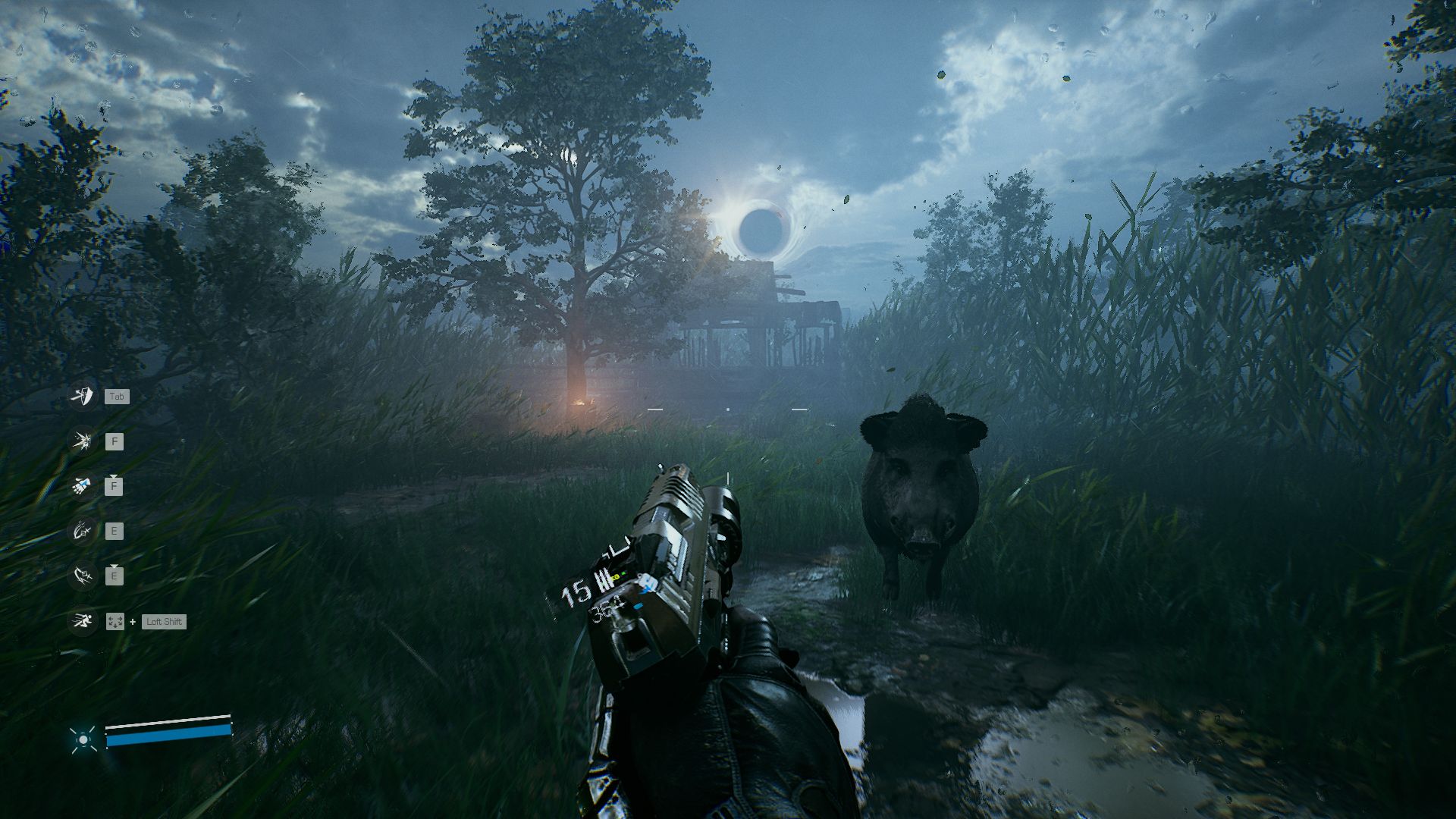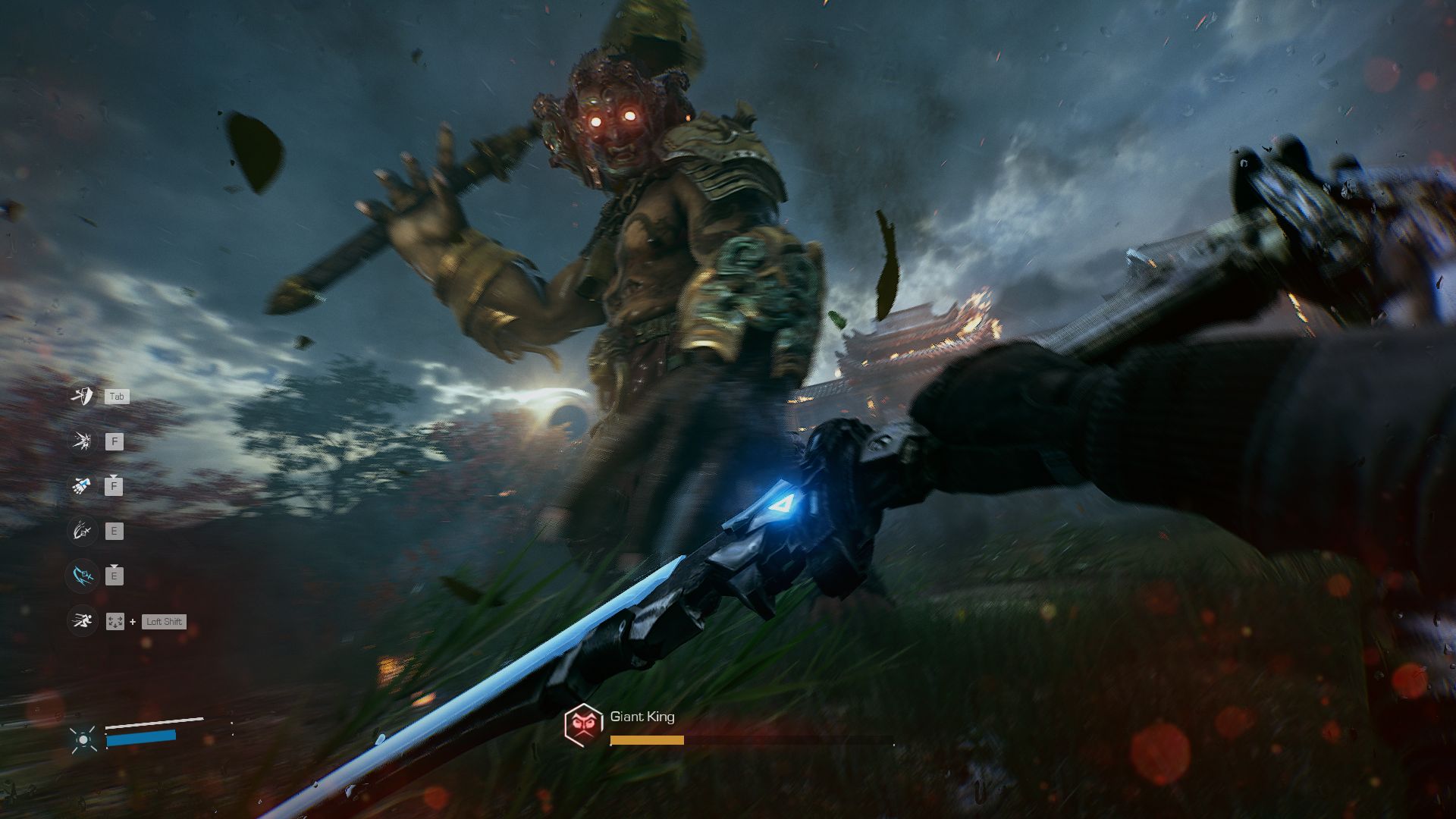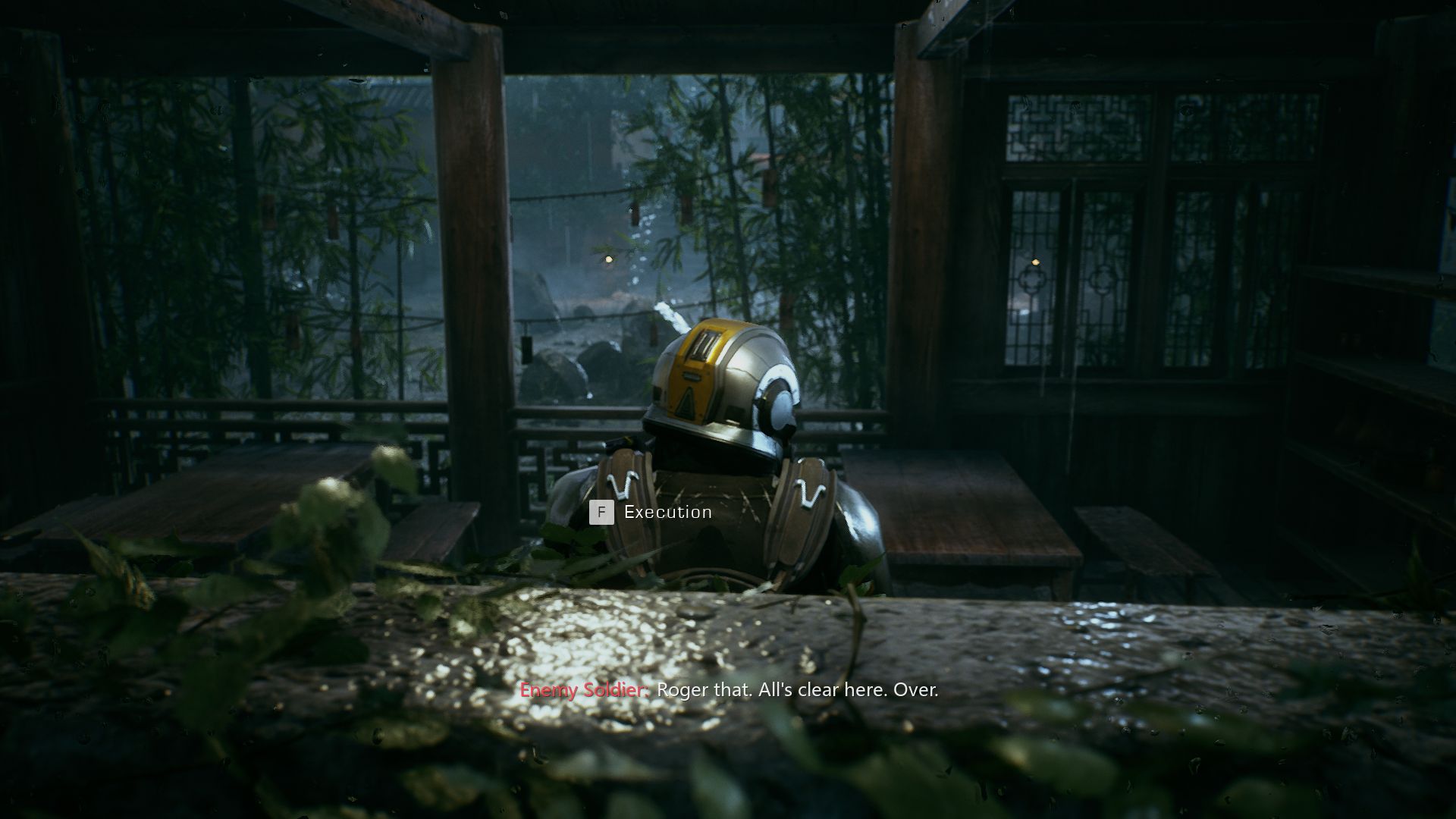This is a short, linear shooter about riddling high-tech corporate goons and ancient mythical chinese warriors with bullets and blade wounds - a shooter that’s left me both razzled and dazzled, but not without reservation. Bright Memory is a mixed bag, but let’s start by tucking into all the gold clanking amidst the copper. For starters, there’s a base level of enjoyment that games can’t really dip below if they let me deflect projectiles with a sword. This isn’t one of the finest examples of that (by which I mean it isn’t Samurai Gunn), but it is possibly the prettiest. You can block for a generously long time, spraying golden reflections across your screen as you charge in for a katana kill, or just turtle up for the few moments it takes for your health to regenerate. Precise timings are only vital when your foes get up close and personal, or against electro-staffs, riot shields and giant axes that need to be blocked before their wielders are vulnerable to normal attacks. There’s a rhythm to it, as you’d hope. Sword clashes segue into shotgun blasts, dashes chain into sprints, sprints chain into charged up rocket blasts. Some of these moves are unlockable and upgradable, with new toys arriving at a blistering pace. Within 20 minutes you’ll have a sword that can decapitate a corpo-chump from ten paces, and within 40 you’ll be leaping into the air for colossal ground pounds. Those same upgrade points can be spent enhancing the alternate fire mode for each of your four guns, too, though those tend to be more straightforward damage and AOE buffs. The combat’s drawn comparisons to Devil May Cry, and for good reason - there’s a playground feel to it, where, at least on the standard “violent” difficulty level, fights are less about struggling to survive and more about striving to look stylish. Sure, hammering your blade slash button might be the safest and most effective way to cut down a field of soldiers, but why do that when you can use your wrist-mounted tractor beam to drag one helplessly in front of you before releasing an EMP blast that disintegrates everything in front of you in a small blue apocalypse? I wish (impressively, mostly solo) developer Zeng Xiancheng had leaned a little harder in that direction, in fact, with a style combo metre that provided a reward for variety beyond my inner voice going ‘woo yeah that was cool’. A style metre would also have the huge advantage of puncturing some of Bright Memory’s po-faced self-seriousness. There’s remarkably little to the story - you’re barely introduced to the female protagonist before your boots hit the rain-soaked ground to investigate a weather anomaly for your mysterious boss. It’s most charitably interpreted as a sort of moody vignette, complete with a broody bloke from an evil corporation who’s less of a character than he is a facial expression. When the gigantic ancient demonic warriors show up, they’re hardly commented on. The story is disjointed and schlocky, albeit in a way that leads to a couple of stand-out set pieces like those plane shenanigans I mentioned in the intro. This is a world established for the purpose of doing cool sword things and it shows, but ultimately you can just shrug and move on, and it’s infinitely preferable to COD’s contemptible pseudo-justifications for torture and war crimes. There is, however, a reason I just used the word ‘vignette’: the entire game only lasts about two hours. Every moment of it looks beautiful, especially if your PC can handle a spot of fancy ray tracing, but every moment also looks more or less the same. You’re always moving through more or less the same environment, pushing past flooded and windswept villages with that black hole hanging out on your horizon. It’s a look, but it’s just the one look, and then it’s over. That’s not necessarily a bad thing. In a world where games frequently outstay their welcome, it’s refreshing to play one where the credits roll just as it begins to feel repetitive. Fighting feels varied, but not endlessly so. Crumpling soldiers does feel intrinsically satisfying, but the freshness of fights still relies on your enthusiasm to try out the new cool move you just unlocked. It was a wise choice to dole those out so generously, when most games would pad them out across over-familiar encounters. Here, I dived straight into the depths of a healthy upgrade pool and finished just as I was scraping against the bottom. That said, the ending does still feel abrupt and it is worth knowing two hours or so is all you’re paying for - nor will those two hours be consistently good. When I reached the end, one of my first thoughts was relief at no longer running the risk of having to stumble into another of those tediously old-school, ‘fade to black and implied death’ upon discovery stealth sections. It turns out there is only one of those, albeit a lengthy one in a section that also heinously and simultaneously commits the crime of taking all your powers away because of electromagnetic ugh. Traversing between fights doesn’t feel half as slick as the combat itself either, with wall-running and mantling animations that often click awkwardly into place. It’s gorgeous, and the gun-fu techno biffing feels cracking, for a time - but elsewhere Bright Memory: Infinite is uneven and hammy. Like a home-cooked sausage roll baked with more love than skill. You’re here for a good time, not a long time, or even a truly phenomenal one. Like I said, this isn’t Samurai Gunn. A more helpful on-genre comparison would be Severed Steel - a recent and properly stupendous take on acrobatic gun ballet that packs a heady mix of panache, slow-mo bullet dodging, and coherent artistic vision. In contrast, BMI can come across as clunky. Nevertheless, it’s unfair to evaluate a game solely through the lens of a masterpiece. The mountainous peaks you can reach with Severed Steel don’t make BMI’s hills not worth climbing, and this is still an impressive creation to spring largely from one person’s work. A short blast of high fidelity bombast might be just what you’re after, and this reaches levels of spectacle you’d typically expect from a much bigger team with a much bigger budget.


